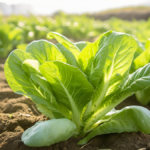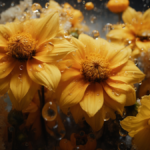The Buzz About Pollinators
Imagine a world without vibrant flowers, luscious fruits, and bountiful harvests. This bleak scenario could become a reality if we disregard the vital role of pollinators in our ecosystem. From the tiniest insects to the majestic birds, pollinators play an essential role in the natural world. In this article, we will explore why pollinators are important & so crucial to our planet’s health and why we should all take an active interest in their well-being.
The Pollination Process Unveiled
Pollination is a miraculous natural process that facilitates the reproduction of flowering plants. It occurs when pollen from the male part of a flower, called the anther, is transferred to the female part, known as the stigma, either within the same flower or between different flowers of the same species. This transfer of pollen kickstarts the formation of seeds and fruits, enabling plants to reproduce and proliferate.
A Symphony of Pollinators
A diverse cast of characters takes center stage as pollinators in this ecological symphony. Bees, butterflies, moths, flies, beetles, birds, bats, and even small mammals like rodents all play critical roles in pollination. Each species has its unique way of pollinating, ranging from fuzzy bees collecting pollen on their bodies to hummingbirds sipping nectar from flowers.
The Importance of Pollinators in Agriculture
One of the most tangible benefits of pollinators lies in their impact on agriculture. Around 75% of global food crops rely to some extent on pollination. These crops include staples like fruits, vegetables, nuts, and oilseeds. Without pollinators, these plants would struggle to produce the bountiful yields that feed billions of people worldwide.
Beyond Food: Pollinators and Biodiversity
Beyond agriculture, pollinators play a vital role in maintaining biodiversity in natural ecosystems. They contribute to the reproduction of wildflowers, ensuring the survival of numerous plant species. As plants form the foundation of ecosystems, their successful reproduction supports a chain reaction of life, benefitting insects, animals, and humans alike.
Caffeine and Chocolate: Pollinator Contributions to the Economy
Have you ever wondered about the connection between pollinators and your morning cup of coffee or your favorite chocolate treat? Well, bees, particularly the honeybee, are responsible for pollinating coffee plants and cocoa trees. Their contributions to these crops are not just a matter of taste; they have significant economic implications as well.
The Threats Facing Pollinators
Despite their critical role, pollinators face numerous challenges that threaten their populations. Habitat loss due to urbanization, agricultural expansion, and deforestation is one of the most significant threats. Pesticides, climate change, invasive species, and diseases also take a toll on pollinator populations.
Why You Should Care: The Ripple Effect
You might be wondering why you, as an individual, should care about pollinators. After all, isn’t this just nature’s business? The truth is, the decline of pollinators can have far-reaching consequences. As pollinators vanish, the delicate balance of ecosystems is disrupted, leading to cascading effects on other species and the environment as a whole.
Promoting Pollinator-Friendly Gardens
The good news is that everyone can contribute to pollinator conservation. By creating pollinator-friendly gardens, you can provide safe havens and rich food sources for these vital creatures. Planting a variety of native flowers, avoiding pesticides, and providing water sources are simple yet impactful steps you can take.
Getting Involved: Citizen Science and Advocacy
Engaging in citizen science projects and advocacy efforts is another way to make a difference. Citizen scientists help monitor pollinator populations and contribute valuable data to researchers. Advocating for policies that protect pollinators and their habitats can also drive positive change at a larger scale.
Conclusion: A Shared Responsibility
In conclusion, pollinators are not just a nice addition to the scenery; they are essential players in the survival of life on Earth. Their role in pollination directly impacts our food supply, biodiversity, and the overall health of the planet. Understanding the importance of pollinators and taking action to protect them is not just a responsibility for governments or environmental organizations; it is a shared responsibility that each one of us must embrace. Let us all work together to ensure a flourishing future for pollinators and, by extension, for ourselves.



